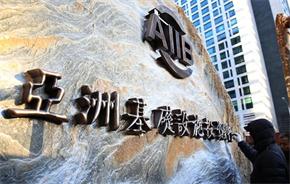Long live the newspaper in a digital age
[2006-02-07 06:26]My daughter says I am uncool because I read the newspaper everyday. And she is not the only one telling me that newspapers have gone out of fashion.
Hong Kong needs more than skilled linguists
[2006-01-24 06:05]South China Morning Post, Hong Kong's leading English-language daily newspaper, warned Hong Kong people against falling behind "in quest for putonghua" in a recent editorial. That's easy to understand. Our political leaders have repeatedly reminded us that the future of Hong Kong is inextricably linked to that of the mainland.
Hong Kong people show more civility in holidays
[2006-01-17 05:46]Christmas in Hong Kong is never dull. But there was something special about this one. I could feel it when I was there during the Christmas week. My journalist friends at the Foreign Correspondents' Club were talking about it, wondering aloud what had happened.
SOE reform will hurt if workers are not flexible
[2006-01-10 07:30]In a recent talk show hosted by CCTV, a group of top mainland executives and government regulators were invited to express their views on one of the most pressing business issues in China State-owned enterprise restructuring. The speakers quickly zeroed in what they unanimously considered to be the crux of the problem, which was the lack of checks and balances at the top.
Taking taxis in big cities causes major headaches
[2006-01-03 06:40]The Spring Festival holiday is only a few weeks away and the country is bracing for the travel craze that will tax the nationwide transportation network to its limit. While the media spotlight, as usual, is focused on the railway operators and the airline companies, many of the perennial problems that have been irking the travelling public daily have largely been ignored for years.
Guarding against real estate oligarchy
[2005-12-27 06:17]I can't agree more with professor Sun Liping on the evil of monopoly he so eloquently exposed in his article in the December 16 edition of China Daily. At the end of his article, the good professor afforded us a chilling glimpse of the rise of the property oligarchies on the mainland.
Business needs no gov't intervention
[2005-12-20 06:37]Encouraging small to medium-sized companies in the private sector to help create new jobs has become a hot economic topic in China. Many of the discussions tend to focus on tax incentives, preferential loans, special land grants and other government largesse.
Freezing Shanghai needs central heating
[2005-12-13 14:46]Before I embarked on my latest assignment to Shanghai, friends warned me that winter in that southern city can feel colder than in Beijing. I thought they were merely echoing a tired old cliche.
As economy globalizes, old practices are left behind
[2005-12-06 06:09]At a business forum shortly after I arrived in Beijing last year, I was surprised that many people there were talking about the need to encourage consumer spending. To me, at least, such a move apparently would have contradicted the government macroeconomic adjustment policy that was introduced to cool off the then overheated economy.
Confidence sky-high in soaring Shanghai
[2005-12-02 05:54]One dreary winter evening in Shanghai, I had an opportunity to share a taxi with a young executive of a joint venture company. Stuck in the city's horrible traffic gridlock, we had plenty of time to talk about a wide range of topics, ranging from the weather to family to work.
Shanghai needs to take bold action to lead delta
[2005-11-29 06:42]Shanghai is a poor choice as the commercial centre for the prosperous and fast growing Yangtze River Delta region. To maintain its lead position, owed largely to historical events and, in more recent years, to central government policies, Shanghai will need to re-invent itself with daring thoughts and bold action.
Branding or advertising?
[2005-11-22 06:17]Despite the hype, branding has remained a black art for many mainland entrepreneurs.









